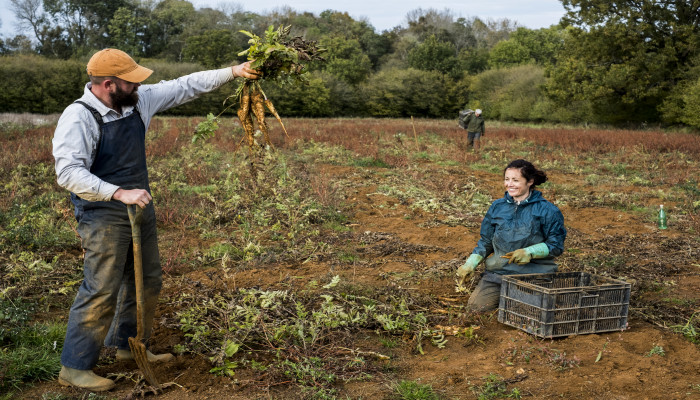 Launch apps instantly. Claim $200 credits on DigitalOcean
Launch apps instantly. Claim $200 credits on DigitalOcean
Why Sustainable Agriculture Practices Are Essential
Written by Sarbagya India » Updated on: March 28th, 2024

Sustainable agriculture practices are crucial for ensuring the long-term health and productivity of our food systems. This comprehensive guide explores the importance of sustainable agriculture practices, their benefits, and how they can be implemented to create a more resilient and sustainable food system, with case studies and research to illustrate their impact.
Benefits of Sustainable Agriculture Practices
- Environmental Conservation: Sustainable agriculture practices help conserve natural resources like soil, water, and biodiversity. They reduce the use of synthetic fertilizers and pesticides, minimizing environmental pollution and degradation.
- Climate Change Mitigation: These practices can mitigate climate change by reducing greenhouse gas emissions. Methods like crop rotation, cover cropping, and agroforestry sequester carbon in the soil, lowering atmospheric CO2 levels.
- Improved Soil Health: Sustainable agriculture promotes healthy soils through the growth of beneficial microorganisms and organic matter. Healthy soils are more resistant to drought, erosion, and disease, leading to improved crop yields.
- Water Conservation: Techniques such as drip irrigation, mulching, and rainwater harvesting reduce water waste and improve water efficiency, crucial in areas prone to water scarcity.
- Support for Local Communities: Sustainable agriculture supports local communities by promoting local food production and distribution. Buying locally-produced food reduces transportation emissions and supports local farmers.
Key Sustainable Agriculture Practices
- Crop Rotation: This practice improves soil health, reduces pest and disease pressure, and enhances crop yields. For example, a study in Uganda found that crop rotation increased maize yields by 45%.
- Cover Cropping: A study in Brazil showed that cover cropping improved soil fertility and reduced soil erosion, benefiting both the environment and crop productivity.
- Integrated Pest Management (IPM): IPM reduces the use of synthetic pesticides by incorporating natural predators and crop rotation. A study in India found that IPM practices increased rice yields by 20-35%.
- Agroforestry: Research in Kenya showed that agroforestry systems increased crop yields by up to 250% while improving soil fertility and biodiversity.
- Conservation Tillage: A study in the US found that conservation tillage reduced soil erosion by up to 90% and increased water infiltration by up to 30%.
Case Studies and Reports
The United Nations Food and Agriculture Organization (FAO) has highlighted the success of sustainable agriculture practices in improving food security and livelihoods in developing countries. For example, in Ethiopia, sustainable agriculture practices have helped farmers increase crop yields and improve soil fertility, leading to improved food security and reduced poverty.
A report by the World Bank found that sustainable agriculture practices can play a significant role in mitigating the impact of climate change on agriculture. The report highlighted case studies from around the world where sustainable agriculture practices have helped farmers adapt to changing climate conditions and improve their resilience to climate-related risks.
A case study from India demonstrated the benefits of sustainable agriculture practices in reducing water use and increasing crop yields. Farmers in the state of Andhra Pradesh adopted sustainable agriculture practices such as drip irrigation and mulching, which helped them reduce water use by up to 50% while increasing crop yields by 20-30%.
Challenges and Future Directions
Challenges to implementing sustainable agriculture practices include cost, knowledge and education, and policy and regulation. Overcoming these challenges requires collaboration between farmers, policymakers, and researchers to promote and support sustainable agriculture.
Conclusion
Sustainable agriculture practices are essential for the health and sustainability of our food systems. By implementing these practices, farmers can protect the environment, conserve natural resources, and support local communities. It is crucial that we continue to research, develop, and promote sustainable agriculture practices to create a more resilient and sustainable food system for future generations
Copyright © 2024 IndiBlogHub.com Hosted on Digital Ocean









Post a Comment
To leave a comment, please Login or Register